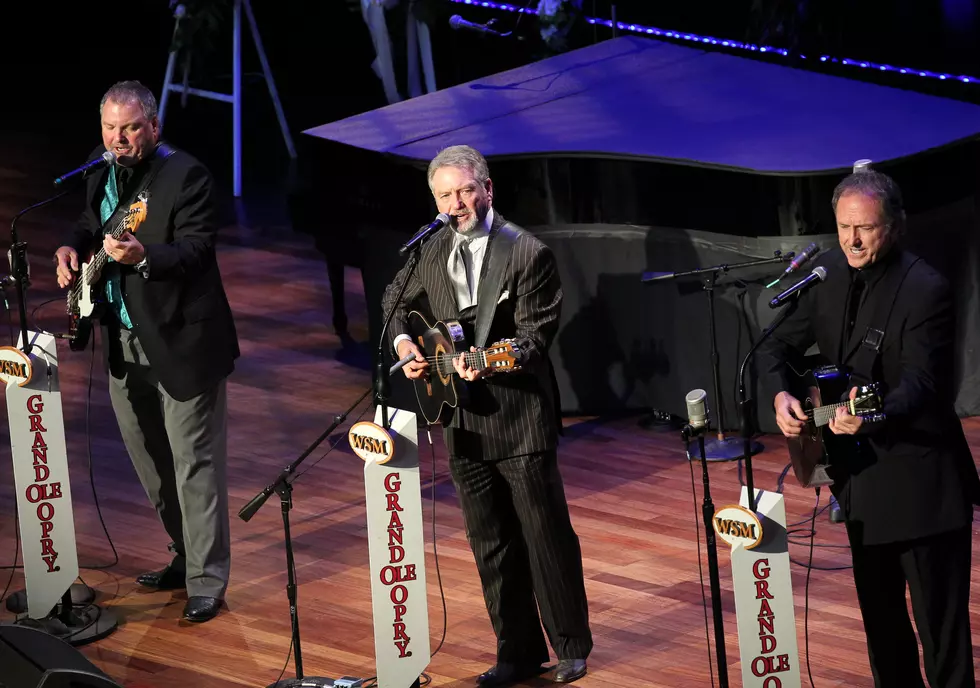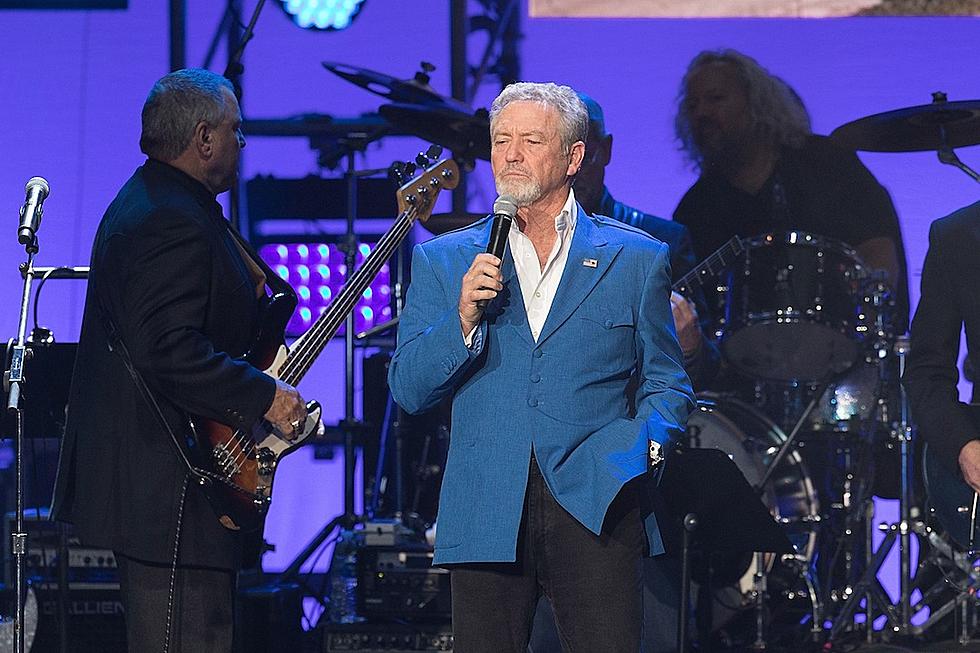
Story Behind the Song: Larry Gatlin, ‘Johnny Cash Is Dead and His House Burned Down’
Larry Gatlin's 2009 album Pilgrimage includes the provocatively titled track "Johnny Cash Is Dead and His House Burned Down," an upbeat tune with a simple melody in which Gatlin shares his own thoughts on modern country music and country traditionalists' cries about the genre's current sound. Below, Gatlin tells The Boot about the inspiration for the tune -- and how he got a little help on the song from, for lack of a better description, the ghost of the Man in Black himself.
I think part of the magic of the song is, it does catch your attention. I was riding in the car with my son, Joshua Cash Gatlin, who was named after John, and we were going to eat ... and we were talking about country music and the changes going on in it. Josh asked me, "What's wrong with the music? It doesn't sound the same. What are those kids doing with it these days?"
I said to Josh, "Let's not blame the young people. Let's root for them." Their music doesn't sound like Merle [Haggard] or Willie [Nelson] or Ernest [Tubb], but they are doing it their way; they're living out their dreams. We have to come to grips and realize the world, Nashville and country music will never be the same. After all, Johnny Cash is dead, and his house burned down. That is exactly how it happened.
We went on to the restaurant, and I turned the placemat over and borrowed a pen from the waitress, and I started writing the song; I went back home and finished it later that night. In another four or five days, I woke up singing the song and realized that it was the exact melody to John's song "Big River;" it just didn't dawn on me about the melody until then.
So I got on the phone and called [Johnny's son] John Carter Cash and told him about the song and told him when I woke up that night, it was like John was singing in my ear. He told me, "I don't think my dad would mind at all. Matter of fact, I think he's smiling right now." Then I called Lou Robin, who was John's manager ... and told him what happened. I said, "I'm gonna put John's name on the song, and I'll split the money if we ever make anything off of it." So they all blessed it ...
... It's about paying tribute to my friend and brother, Johnny Cash; it's also about the passing of an era that will never come back again, and it says to the artists who come after Marty [Robbins], Waylon [Jennings], Patsy [Cline], John and all the other greats that they are standing on mighty big shoulders: "Yeah, do it your way, but make sure you hold true to the vestige of what it's all about."
I'm rooting for Keith Urban, Brooks & Dunn, Rascal Flatts -- that is what Johnny would do -- but at the same time, don't throw us old farts under the bus, because we have viable things to say, and we can still get out there and put on a show.
This story was originally written by Vernell Hackett, and revised by Angela Stefano.
More From KXRB






![Which Country Stars Will Be Performing at 2017 Inauguration Events? [PICTURES]](http://townsquare.media/site/623/files/2017/01/toby-keith-inauguration-2017.jpg?w=980&q=75)
![Larry Gatlin’s ‘Stand Up and Say So’ Rails Against Hillary Clinton [WATCH]](http://townsquare.media/site/623/files/2016/09/larry-gatlin-stand-up-and-say-so.png?w=980&q=75)
![Larry Gatlin & the Gatlin Brothers, ‘It Is Well With My Soul’ [Exclusive Premiere]](http://townsquare.media/site/623/files/2016/04/larry-gatlin-brothers-it-is-well-with-my-soul.jpg?w=980&q=75)

